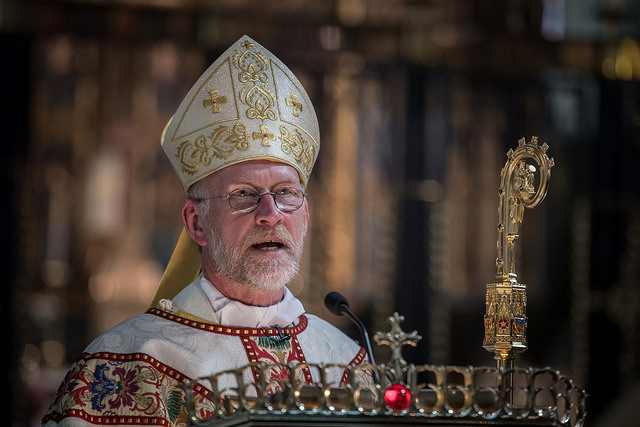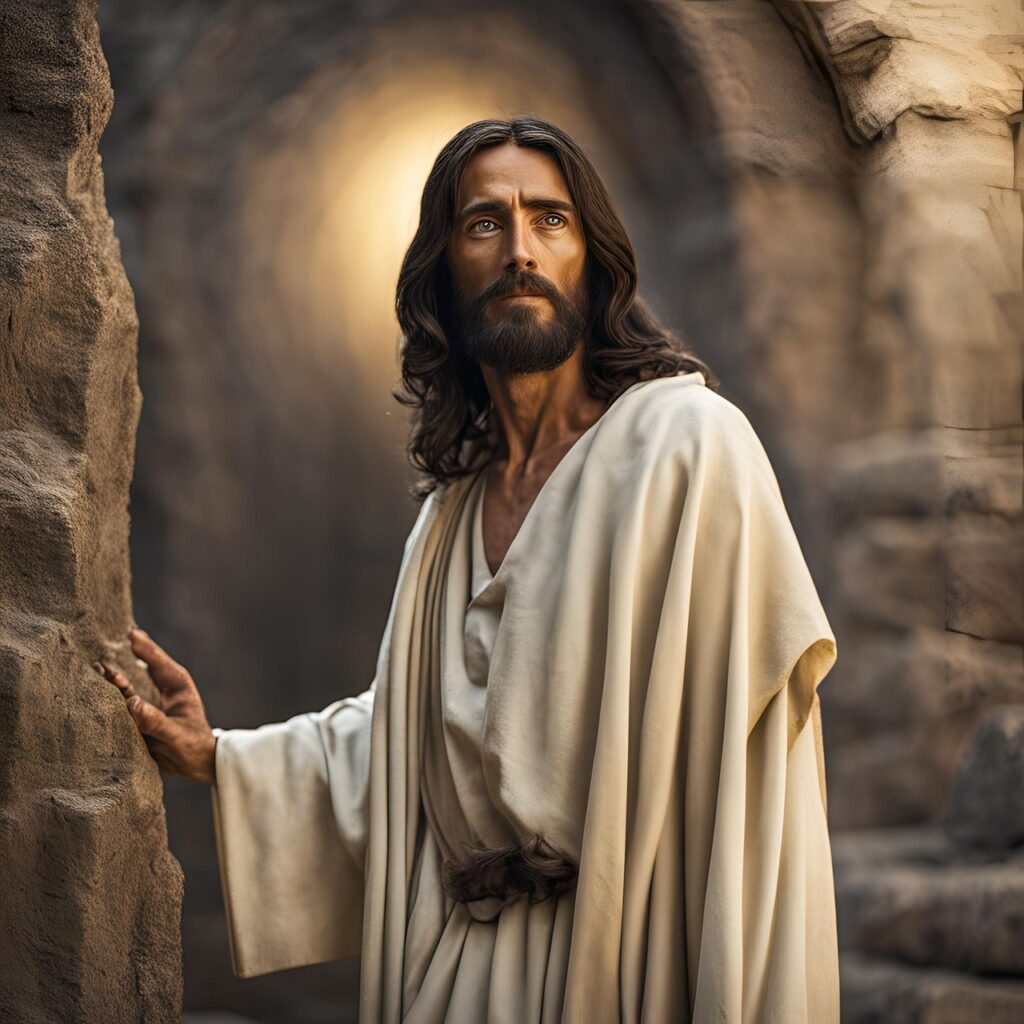English Bishop Pledges Solidarity with Tigray
'Let us remember that as we celebrate Easter Sunday, many people – especially those in Tigray – remain at the heart of the Passion'

The Right Reverend Paul Swarbrick, the Lead Bishop for Africa at the Bishops’ Conference of England and Wales, has expressed his solidarity with those suffering violence and persecution in the Tigray region of Ethiopia, assuring them that “Christ is in the crisis”.
“We wonder where God is in these situations and we remember that the Word became flesh and pitched His tent among us. Christ is in the crisis. As we approach Holy Week, the Passion, the Cross, the Resurrection of Christ, let us remember that as we celebrate Easter Sunday, many people – especially those in Tigray – remain at the heart of the Passion. They struggle to reach Easter Sunday.”
Bishop Swarbrick was speaking in a message recorded for a special Mass for the people of Ethiopia organized and live-streamed by the Church’s Aid and Development agency CAFOD. The Mass was broadcast on 26 March.
He recalls his 15 years spent living in rural Zambia as a Fidei Donum priest and how it helped cultivate a love for the continent of Africa and its people. He has also been in touch with the local Bishop in Ethiopia:
“I have been able to speak directly with Bishop Tesfaselassie in Ethiopia, who has thanked me personally for the contribution of the Church in England and Wales to their efforts in trying to cope with the crisis in Tigray – particularly CAFOD present on the ground.
“He thanks you for your efforts… that you are able to reach out in solidarity to those suffering in the Tigray region of Ethiopia.”
Bishop’s Full Message
Good evening to you all, particularly to Father Mark and to Christine Allen and I’m conscious that Bishop John Arnold whilst not present at the Mass may well be interested in watching from some vantage point online. Bishop Arnold is the Chair of CAFOD.
My name is Bishop Paul Swarbrick, Bishop of Lancaster in the northwest of England, and for the Bishops’ Conference, I carry responsibility for our relationships with Africa. I’m delighted to join you this evening at your Mass to pray for the people of Tigray and for the whole of Ethiopia, and particularly to pray for all those involved in CAFOD – helping to achieve and deliver what it does in the name of the Church in England and Wales.
I personally spent 15 years living in Zambia, rural Zambia, in the 1990s and early 2000s as a Fidei Donum priest. Whilst I experienced nothing like the horror of what is going on in Tigray at the moment, I got a taste for Africa and a love for the continent and the people. I have been able to speak directly with Bishop Tesfaselassie in Ethiopia, who has thanked me personally for the contribution of the Church in England and Wales to their efforts in trying to cope with the crisis in Tigray – particularly CAFOD present on the ground. He thanks you for your efforts. And appreciating this in the midst of all your own troubles, your own problems, you are able to reach out in solidarity to those suffering in the Tigray region of Ethiopia.
When I was in Zambia, I came across a few proverbs, and one, in particular, has stayed with me. When two elephants fight, it is the grass that suffers. Looking at the people in Tigray who are the victims of this conflict, you see the grass that is suffering.
Recently I’ve listened to some accounts of the women who are victims of the violence – personally and also their families and neighbors. One woman spoke of how after all that she’d been through, she was just glad – she thanked God that she was still alive. But then as I listened to some of the others who have suffered rape and physical violence at the hands of the soldiers… they didn’t say these words, but you could hear them saying, “I wish I were dead”. How can their lives have a future after what has happened to them, their loved ones, their homes, their country?
You can sense that the work of CAFOD, at times, can be quite frustrating at best, and tragic at other times as well. All the good we try to do – the humanitarian aid and the faith and solidarity that we try to express – all the efforts that go into that are so easily undone. People on the ground there are conscious that the soldiers will return to do more violence. The nightmares will not go away. The pain, the wounds – both physical, mental, and emotional – will take decades to heal. The fear… the fear will return, so why bother? Why do we make our efforts? Well, one thing we need to remember is that we should not grow used to sin. We should not let sin overcome. When we look at these desperate situations, it would be easy not to enter into them until it’s safe – until we know that our efforts will bear good fruit. But the Gospel doesn’t wait for it to be safe before it goes in.
The Gospel doesn’t work best in a well-organized and peaceful situation. It is designed for the bad stuff. And CAFOD is making sure that the Gospel is going in there – where it is needed and when it is needed. So we need to hear the cry of Tigray’s people by listening to them and sharing their testimonies as much as we can. Bishop Tesfaselassie asks us to keep the profile of the crisis alive in the minds and hearts of people here.
We are called to stand in solidarity. Even though we are far away, physically, we can be close to them – through our prayer and through our efforts. We can also take encouragement from the example of Pope Francis, who says that when confronted with the horrors of war, we should not remain mired in theoretical discussions, but touch the wounded flesh of the victims. This is what the CAFOD workers, this is what CAFOD supporters, are actually doing – touching the wounds of those who are in crisis.
Again, I remember in Zambia visiting a woman who was dying of AIDS, and when I anointed her on the forehead and on the hands, after I’d done that and finished the prayers, she actually took hold of my hand and put it on her abdomen. Because that’s where she was feeling the pain. And it’s as though the people of Tigray are taking the hand of CAFOD and putting it on the place where it hurts. Let them guide you to show how best you can help them.
I would also like to thank all the CAFOD workers and pray for your safety, those of you who are actually in the field, and I would like to remind us the prayer is not enough. Jesus tells us that prayer, fasting, and almsgiving are the weapons we use. Mass is important and essential, but we need to go beyond that.
We wonder where God is in these situations. And we remember that the Word became flesh and pitched his tent among us. Christ is in the crisis. As we approach Holy Week, the Passion, the Cross, the Resurrection of Christ, let us remember that as we celebrate Easter Sunday, many people – especially those in Tigray – remain at the heart of the Passion. They struggle to reach Easter Sunday.
So we thank God for the example of the Church in Ethiopia and we pray for them and work with them and stand alongside them in praying for – and working for – better days and happier times. And we know that God will not allow this mess to end like this.
So God bless you all and I ask that God will keep you safe and well.
Related

After Eight Days Jesus Arrived: Commentary by Fr. Jorge Miró
Jorge Miró
26 April, 2025
3 min

The Perspectivas del Trabajo Foundation is founded with the aim of promoting virtues for professional development
Exaudi Staff
25 April, 2025
2 min

Reflection by Bishop Enrique Díaz: Alleluia, alleluia
Enrique Díaz
20 April, 2025
5 min

Christ is Risen! Alleluia! Commentary by Fr. Jorge Miró
Jorge Miró
20 April, 2025
3 min
 (EN)
(EN)
 (ES)
(ES)
 (IT)
(IT)

